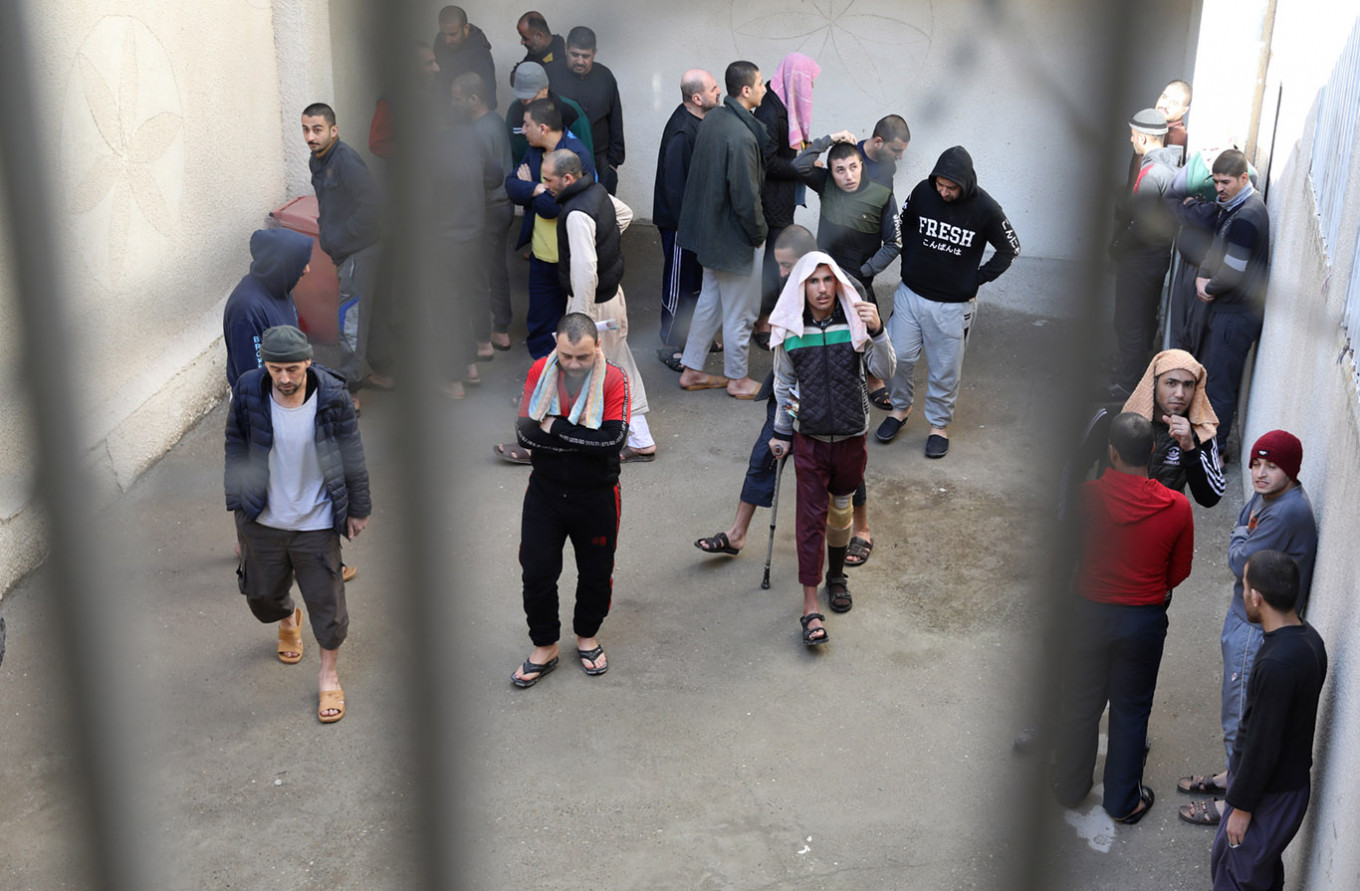Popular Reads
Top Results
Can't find what you're looking for?
View all search resultsPopular Reads
Top Results
Can't find what you're looking for?
View all search resultsCOVID-19 may reduce pro-IS activity, but attacks still possible: IPAC
While most pro-Islamic State supporters will stay at home to prepare for the imminent armageddon, some might try to launch attacks against the government by, among other measures, sending already COVID-19 infected supporters and deliberately infecting their enemies, such as police officers.
Change text size
Gift Premium Articles
to Anyone
T
he COVID-19 pandemic has contributed to reducing the activity of the Islamic State (IS) group in the country, as highlighted by the latest report from the Institute for Policy Analysis of Conflict (IPAC).
However, there remains the possibility of IS supporters launching attacks against the Indonesian government as it battles to contain the outbreak nationwide.
The IPAC highlighted a decreasing level of IS supporters’ activity, reflected in the low number of arrests against terror suspects during the first months of 2020.
It also argued that the reduced activity might be caused by IS sympathizers reacting to the COVID-19 outbreak by staying at home to wait for the end of the world as foretold in Islamic prophecies, rather than carrying out jihad operations.
The supporters, it added, viewed the COVID-19 outbreak as a thaun (plague) mentioned in various hadiths. When the plague comes, Muslims are told by the hadiths to stay at home and be patient. If they eventually die of the disease, they will still be considered a martyr.
“The IS supporters who take this view tend to choose to stay at home and not carry out jihad operations [amaliyah] – especially if they get the same heavenly reward by doing so,” the report suggests.
Read also: What impact is COVID-19 having on Middle East conflicts?
Others have seen the outbreak as a sign of the end of time, which occurred before the dukhan, which refers to a hot cloud that will cover parts of the Earth for 40 days and nights. Its appearance is believed to precede the coming of Imam Mahdi, the Islamic messiah.
“The IS supporters who take this view believe the pandemic is a dress rehearsal for the dukhan,” the report read.
“This second group will also take no action. They prefer to stay at home and train family members in preparation for the end of time, which they believe is imminent.”
Despite the reduced activities, IPAC noted there was still a possibility for IS supporters to see the outbreak as an opportunity to launch attacks, as they see the Indonesian government as being in a state of weakness while trying to contain the disease.
The report suggested that a possible method of attack would be to use IS supporters who were already infected with the virus to try and deliberately infect those they considered their enemies, such as police officers.
In addition, the study predicted that IS supporters could also seek to join insurgent groups in the country that are currently active in recruiting members, as the government’s attention has been diverted to containing the outbreak.
The same strategy was used after the Aceh tsunami in 2004, Yogyakarta earthquake in 2006 and Palu earthquake and tsunami in 2018.
Authorities were also urged to watch the extremist inmates in Indonesian detention centers and prisons, as the prison population is deemed vulnerable to the disease.
Violent unrest could be sparked off once the word on COVID-19 positive cases in prison spread, especially when prison healthcare systems are deemed inadequate to handle the disease, IPAC went on to say.
Read also: Overcrowded regional prisons release inmates early to limit contagion
The IPAC suggests that Indonesian authorities also monitor fundraising efforts through online charities or religious organizations in connection with the outbreak, including appeals for protective equipment for healthcare workers.
“Most of the private fundraising efforts taking place in connection with the pandemic are going to be legitimate, but over the last two decades, what has happened in Indonesia is that whenever disasters occur, extremists seek to benefit.”
Law enforcement agencies were urged to remain vigilant during the pandemic by, among other measures, developing guidelines on procedures for handling unrest in penitentiaries as well as anticipating attempted escapes.
The Financial Transaction Reports and Analysis Center (PPATK) would also need to watch out for fundraising efforts for terror activities in the name of humanitarian assistance, the IPAC concluded.










